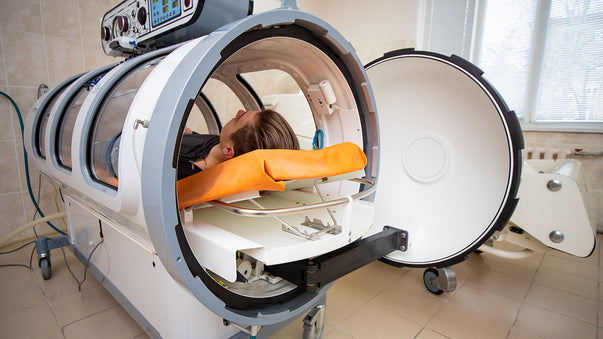Gene Therapy for Vision and Neurology

Researchers at Trinity College, in collaboration with clinical teams at Royal Victoria Eye and Ear Hospital and Mater Hospital, have developed a new gene therapy. The approach offers promise for one day treating dominant optic atrophy (DOA). It's an eye disease that leads to a progressive loss of vision and affects thousands of people across the globe. There is currently no way to prevent or cure DOA.
The new therapy is described in a study published in Frontiers in Neuroscience. It also has implications for a much wider suite of neurological disorders associated with aging.
“We used a clever lab technique that allows scientists to provide a specific gene to cells that need it using specially engineered non-harmful viruses,” said research co-leader Dr. Daniel Maloney.
A gene called OPA1 provides instructions for making a protein crucial to the proper functioning of mitochondria, which are the energy producers in cells. Mutations in OPA1 cause malfunctioning of mitochondria. That's followed by the onset and progression of DOA. The new research development permits providing working versions of OPA1 to cells.
“Having worked together with patients over many years who live with visual and neurological disorders it would be a privilege to play a role in a treatment that may one day help many,” added research co-leader Prof. Jane Farrar.
At the same time, Farrar cautioned against excessive expectations for the short term. “We are very excited by the prospect of this new gene therapy strategy, although it is important to highlight that there is still a long journey to complete from a research and development perspective before this therapeutic approach may one day be available as a treatment,” she said.
This can and should be said for all medical research breakthroughs. They typically take a long time to progress from research labs to clinical applications. But, eventually, research advances mature and help patients.
Also, in breaking news, DeepMind has just announced that the Artificial Intelligence (AI) system AlphaFold is able to solve the protein folding problem. According to Nature, this is a gigantic leap and a game changer for life sciences and medicine. More in next week’s Pulse.
New Drug Guides Stem Cells to Damaged Tissue
Scientists at Sanford Burnham Prebys Medical Discovery Institute have created a drug, called SDV1a. It can guide stem cells to damaged tissue and improve the efficacy of stem cell treatments.
The discovery is described in a research paper published in PNAS. It could improve current stem cell therapies designed to treat neurological disorders. Examples include spinal cord injury, stroke, amyotrophic lateral sclerosis (ALS), and other neurodegenerative disorders.
The discovery could also expand the use of stem cell therapies to other medical conditions, such as heart disease or arthritis. According to the scientists, this is a scientific first and a major advance for the field of regenerative medicine.
Programming Super Immune Cells Against Cancer
Researchers at Georgetown Lombardi Comprehensive Cancer Center have reprogrammed immune-system T cells into regenerative stem cell-like memory (TSCM) cells. They are long-lived, highly active “super immune cells” with strong antitumor activity.
A paper is published in Nature Immunology. It shows that reprogramming T cells into TSCM cells can significantly improve T cell immunotherapies for cancer patients.
In T cell immunotherapy, immune-system T cells are separated out from a patient's blood. Then they are engineered and expanded with special tumor-targeting capabilities. And finally, they are infused back into the patient to fight cancer.
The new research results also show that drugs already approved for human use may significantly enhance currently available immune therapeutic approaches. This may lead to better and more durable anti-cancer responses.
Cancer Vaccine Combined Immunotherapy Drug
Scientists led by Ohio State University have proposed a potential therapeutic anticancer vaccine. It would free suppressed cancer-killing immune cells, enabling them to attack and destroy a tumor.
A study is published in OncoImmunology. It reports encouraging preclinical results in laboratory animals with colon cancer.
According to the scientists, the vaccine, used in combination with an immunotherapy drug, super-charges and specifically directs the immune system to target and kill cancer cells.. The combination treatment produced complete responses in nine of ten animals.
More Articles
Don't miss a beat! In our Pulse Newsletter, Thrivous curates the most important news on health science and human enhancement, so you can stay informed without wasting time on hype and trivia. It's part of the free Thrivous newsletter. Subscribe now to receive email about human enhancement, nootropics, and geroprotectors, as well as company news and deals.
Read more articles at Thrivous, the human enhancement company. You can browse recent articles in Thrivous Views. See other Pulse Newsletter articles. Or check out an article below.
-
Old Age May Be Too Late For Some Anti-Aging Treatments
New research is likely to provoke a greater sense of urgency among life extension enthusiasts. The research is related to ...
-
Have Scientists Reversed Aging?
Scientists at Tel Aviv University and Shamir Medical Center have shown that hyperbaric oxygen treatments in healthy aging adults can ...


